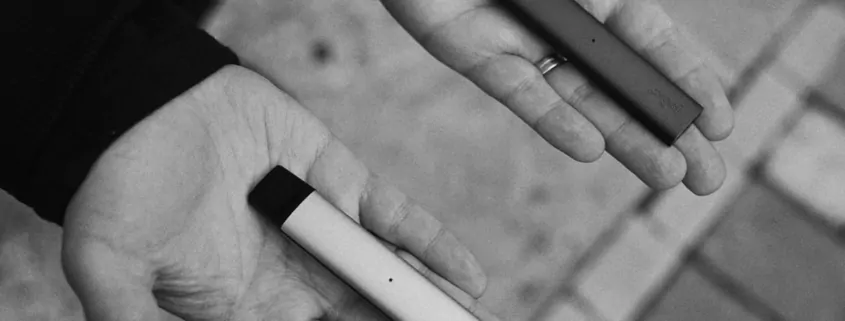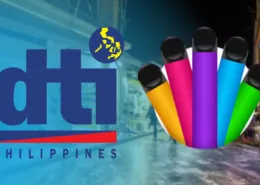Fines & Strict Regulations under Chile New Vaping Law
Chile has ushered in a new era of stringent e-cigarette regulation with the recent enactment of Ley 21.642. Effective on 21/May, the law establishes a comprehensive framework of rules and significant financial penalties for both consumers and businesses involved in the vaping market. These measures aim to control the use and commercialization of vape products, aligning many restrictions with those already in place for traditional tobacco.
The legislation introduces a tiered system of fines (denominated in UTM, a Chilean inflation-indexed unit of account), targeting various infractions from illegal sales and non-compliant products to advertising violations and public consumption in prohibited areas.
Penalties for Non-Compliant Sales and Products
The new law takes a firm stance on the commercialization of vaping products, imposing hefty fines for several violations:
- Illegal Sales Practices: Individuals selling vapes without adhering to customs, tax, and health regulations face fines ranging from 3 to 50 UTM (approximately $200,000 to $3.4 million Chilean pesos). For businesses or entities within the industry committing similar offenses, these penalties increase significantly, ranging from 30 to 300 UTM (approximately $2 million to $20 million CLP).
- Unauthorized Additives: If vape products are found to contain additives not authorized by the Ministry of Health (MINSAL), the responsible parties can be fined up to 1,000 UTM (approximately $68 million CLP), and the non-compliant products will be subject to confiscation.
- Sales Near Educational Institutions: A strict prohibition is now in place against selling vape products within 100 meters of educational facilities. Violations can result in fines up to 50 UTM ($3.4 million CLP) for individuals and up to 300 UTM ($20 million CLP) for businesses in the tobacco industry.
- Sales to Minors: The same substantial penalties (up to 50 UTM for individuals, 300 UTM for industry actors) apply to the sale of any vaping products to individuals under the age of 18.
Advertising and Packaging Mandates
The promotion and presentation of vaping products are also heavily regulated under Ley 21.642:
- Advertising Ban: All advertising related to the consumption of vapes is now prohibited. Offering compensations or prizes for their purchase is also banned. Non-compliance with these advertising rules can lead to fines of up to 50 UTM ($3.4 million CLP) for individuals and a staggering 500 UTM ($34 million CLP) for businesses in the sector.
- Mandatory Health Warnings: Vape packaging must now clearly display a warning stating that electronic nicotine delivery systems “are potentially addictive” and that their sale is “exclusive for those over 18 years.” Additionally, packaging must detail the product’s components. Failure to meet these labeling requirements can result in fines ranging from 101 to 500 UTM (approximately $6.8 million to $34 million CLP).
Restrictions on Public Vaping and Venue Responsibilities
One of the most significant changes for consumers is the extension of smoking bans to include vaping in numerous public and private enclosed spaces. Vaping is now prohibited in locations such as:
- Schools
- Supermarkets
- Shopping malls
- Airports
- Cinemas
- Hospitals
- Restaurants
- Public transportation
Individuals caught vaping in these unauthorized public spaces face a minimum fine of 2 UTM (approximately $136,000 CLP). For repeat offenses, this fine can double to around $272,000 CLP.
Furthermore, the law places responsibility on the owners or administrators of establishments where vaping is prohibited. They can be fined 2 UTM for each person found vaping on their premises. However, venue owners can be exempted from this fine if they can demonstrate they informed the violators of the rules and reported the infraction.
Establishments where vaping is banned are also required to display clear signage indicating this restriction. Failure to display such signage can result in fines of up to 20 UTM (approximately $1.3 million CLP) for the owner or administrator.
Regional Context: Vaping Regulations Across Latin America
Chile’s new comprehensive law aligns it with a growing number of Latin American countries that have implemented significant controls on e-cigarettes, although approaches vary. The new Chilean regulations share similarities with policies in countries like Colombia and Peru, which also prohibit the sale of vapes to minors and restrict their use in enclosed public spaces.
Other nations in the region have adopted even stricter stances. Argentina, for example, has prohibited the commercialization, distribution, and importation of e-cigarettes since 2011. Brazil has maintained a similar comprehensive ban for over a decade, which also includes the prohibition of consumption in public spaces.
Bolivia, Mexico, Panama, Uruguay, and Venezuela also have regulations in place that either totally ban or partially restrict the use and sale of these products. Chile’s new law, with its detailed framework of fines and restrictions, marks a significant step towards tighter control of the vaping market within its borders, reflecting international concerns about the addictive potential and health risks associated with e-cigarettes, particularly among younger populations.
- Cambodia: Phnom Penh Bans Smoking & Vaping on “Walk Street” - August 16, 2025
- Mexico City Congress Approves Ban on Vapes & E-Cigs - August 16, 2025
- Is It Illegal to Vape or Smoke While Driving in Minnesota? - August 15, 2025








